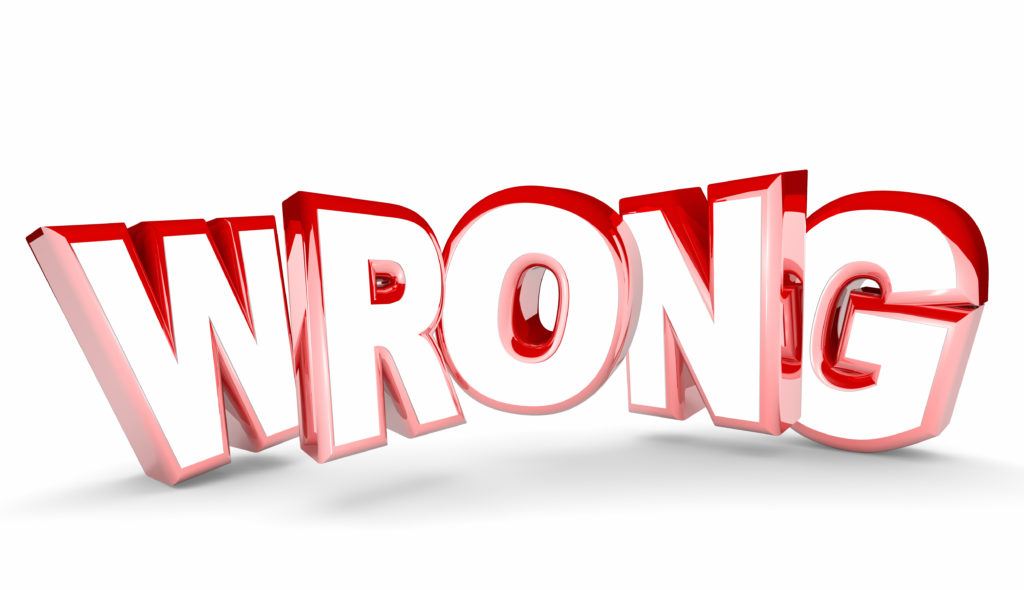What Do You Do If Your Credit Card Bill Is Incorrect?

Mistakes happen all the time but what do you do if you believe your credit card bill in incorrect? Checking your monthly bills is critical to catching errors. What happens if you complain, but you are found to be wrong? You need to know what your rights are.
Should you find an error on your bill, contact the creditor right away. This can usually be done online or by phone. You may be asked to provide documentation regarding your claim so be sure to send that in promptly.
Bill is Incorrect
When you file a dispute saying your credit card bill is incorrect, the creditor will begin an investigation. If the creditor determines that you owe a portion of the disputed amount, you must get a written explanation. You may request copies of documents proving you owe the money.
If the creditor determines the disputed amount is incorrect, they must remove it from your bill. They also must provide written documentation that they will be removing the charge in its entirety.
Bill is Correct
If the investigation determines the bill is correct, you must be told promptly. Additionally, you must be sent written documentation regarding how much you owe and why. You may ask for copies of relevant documents. At this point, you’ll owe the disputed amount, plus any finance charges that accumulated while the amount was in dispute. You also may have to pay the minimum amount you missed paying because of the dispute.
If you disagree with the results of the investigation, you may write to the creditor. You must respond within 10 days after receiving the explanation. You may choose to indicate that you refuse to pay the disputed amount. At this point, the creditor may begin collection procedures. If the creditor reports you as delinquent, they must state that you don’t think you owe the money. The creditor must tell you who gets these reports.
Failure to Follow Procedure
When you believe your credit card bill is incorrect, a creditor has 30 days to respond to any dispute you file. Any creditor who fails to follow the settlement procedure may not collect the amount in dispute. They may also not collect on any finance charges. For example, if a creditor acknowledges your complaint in 45 days – 15 days too late – or takes more than two billing cycles to resolve a dispute, the penalty applies. The penalty applies if a creditor threatens to report, or improperly reports, your failure to pay during the dispute.
An important caveat
Disputes about the quality of goods and services are not “billing errors,” so the dispute procedure does not apply. If you buy unsatisfactory goods or services with a credit card, you can take the same legal actions against the card issuer as you can take under state law against the seller.
To take advantage of this protection regarding the quality of goods or services, you must:
- have made the purchase in your home state or within 100 miles of your current billing address
- the purchase must be more than $50
- make a good faith effort to resolve the dispute with the seller first
The dollar and distance limitations don’t apply if the seller also is the card issuer.
Other billing rights
Businesses that offer “open end” credit also must:
- give you a written notice when you open a new account, that describes your right to dispute billing errors
- notify you in advance of any changes in the terms and conditions of your account
- provide a statement for each billing period in which you owe – or they owe you – more than one dollar
- send your bill at least 14 days before the payment is due – if you have a period within which to pay the bill without incurring additional charges
- credit all payments to your account on the date they’re received, unless no extra charges would result. Creditors are permitted to set some reasonable rules for making payments, say setting a reasonable deadline for payment to be received to be credited on the same date
- promptly credit or refund overpayments and other amounts owed to your account. This applies to instances where your account is owed more than one dollar. Your account must be credited promptly with the amount owed. If you prefer a refund, it must be sent within seven business days after the creditor receives your written request. The creditor must also make an effort to refund any credit that has remained on your account for six-plus months.
Suing the creditor
You can sue a creditor who violates the FCBA. If you win, you may be awarded damages, plus twice the amount of any finance charge – as long as it’s between $100 and $1,000. The court also may order the creditor to pay your attorney’s fees and costs.
If possible, hire a lawyer who is willing to accept the amount awarded to you by the court as the entire fee for representing you. Some lawyers may not take your case unless you agree to pay their fee – win or lose – or add to the court-awarded amount if they think it’s too low.




